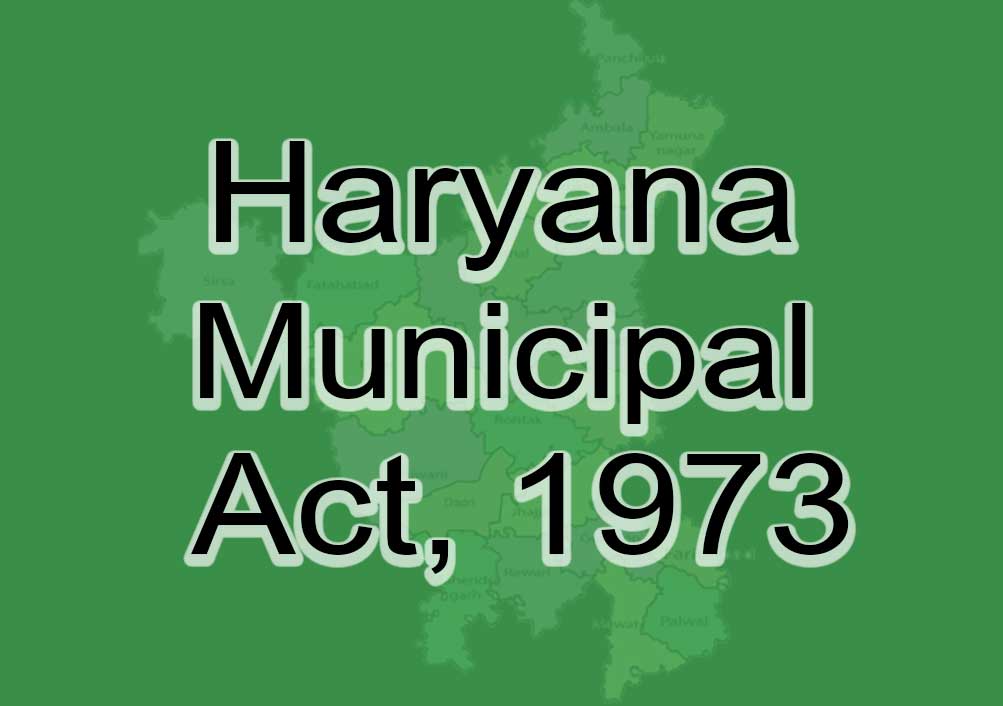Disqualification under Sec. 13-A(1)(h) of Haryana Municipal Act,1973 would not be attracted if petitioner is holding matriculation qualification from any recognised Institution or Board: HC

Read Order: Kanwar Singh v. State of Haryana and others
Tulip Kanth
Chandigarh, September 17, 2021: The Punjab and Haryana High Court has allowed a petition challenging the order passed by the State Election Commissioner, Haryana(second respondent ) exercising the powers under Section 13 (I) of the Haryana Municipal Act, 1973 and in terms of which the petitioner had been removed from the post of President, Municipal Committee, Dharuhera.
Herein, the second respondent had issued a programme for conducting general elections for the seat of President and members of all the wards of Municipal Council Rewari, Municipal Committee, Sampla (Rohtak), Dharuhera (Rewari) and Ukalana (Hisar). Elections of these municipalities were conducted and petitioner herein was declared elected as President of Municipal Committee, Dharuhera.
One Sh.Sandeep Bohra along with others filed a petition in the office of the second respondent alleging that the petitioner had incurred a disqualification at the time of election under Section 13-A (1) (h) as he had not passed the Matriculation examination or its equivalent examination from any recognised institution/board.
The inquiry report was submitted returning findings that even though the Matriculation certificate produced by the petitioner had been issued by the Central Board of Higher Education (Uttam Nagar), New Delhi but the same could not be seen as valid qualification since any examination conducted by the Central Board of Higher Education, New Delhi was not recognised equivalent to the same category of examination conducted by the Haryana School Education Board nor was it included in the list of same category of the Board.
Later, the second respondent removed the petitioner form the post of President, Municipal Committee, Dharuhera taking a view that the petitioner had incurred a disqualification .
The Division Bench of Justice Tejinder Singh Dhindsa and Justice Vivek Puri opined that the provision in question i.e. Section 13-A (1) (h) is couched in clear and unambiguous terms. A person shall be disqualified for being chosen as president or member of a municipality if he has not passed matriculation examination or its equivalent examination from any recognised institution/board.
It is a well settled principle of interpretation that if the words of the statute are precise and unambiguous then the Court must expound those words in their natural and ordinary sense because the words themselves best declare the intent of the law giver, observed the Court.
The Bench added that as per language of the provision there is no stipulation or requirement of the matriculation qualification being from any particular institute or board. If the legislature wanted to incorporate such requirement of possessing matriculation from any particular board or to treat such qualification valid only if it is recognised by the Haryana School Education Board then the language of the provision would have been differently worded.
The Court was of the opinion that the disqualification would apply only if the petitioner had not passed the matriculation or its equivalent from any recognised institution/board. In terms of confining the matriculation examination as valid only if the same is acquired from an institution/board recognised by the Haryana School Education Board, the second respondent had rendered the word any appearing in Section 13-A (1) (h) to be redundant.
According to the Division Bench, such an interpretation would play foul of the statutory provision and as such could not sustain. It was held that so long the petitioner held the matriculation qualification from any recognised institution or board the disqualification under Section 13-A (1) (h) would not be attracted.
The Court also noted that the matriculation qualification certificate possessed by the petitioner was of the year 1981 and as such would be seen as a valid matriculation qualification from a recognised institute.
The Division Bench also went on to add that it is by now well settled that review proceedings are not by way of an appeal and have to be strictly confined to the scope and ambit of Order 47 Rule 1,CPC.The power of review is open to be exercised on the discovery of new and important matter or evidence which, after the exercise of due diligence was not within the knowledge of the person seeking review, or could not be produced by him at the time when the order was made; it may also be exercised where some mistake or error apparent on the fact of the record is found; it may also be exercised on any analogous grounds. But it is not to be exercised on the ground that the decision was erroneous on merits.
The Court also added that herein petitioner is questioning the legality and validity of the impugned order passed by the State Election Commissioner, Haryana on merits and so, under such circumstances the objection on behalf of the State that the petitioner had an alternate remedy of review would not be tenable.
Sign up for our weekly newsletter to stay up to date on our product, events featured blog, special offer and all of the exciting things that take place here at Legitquest.




Add a Comment